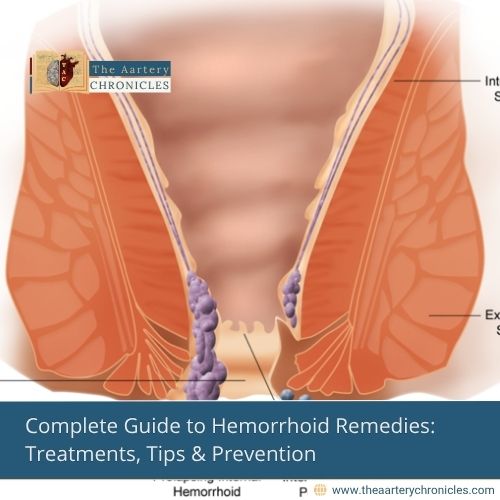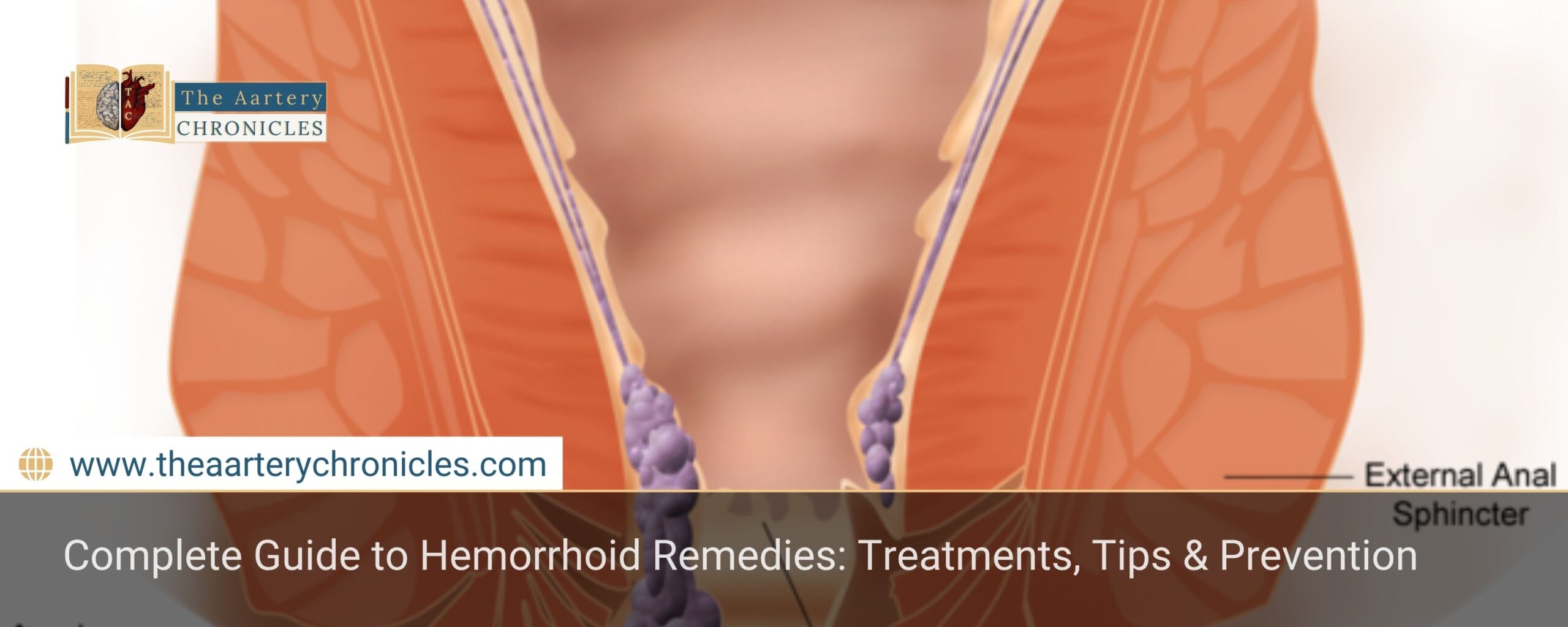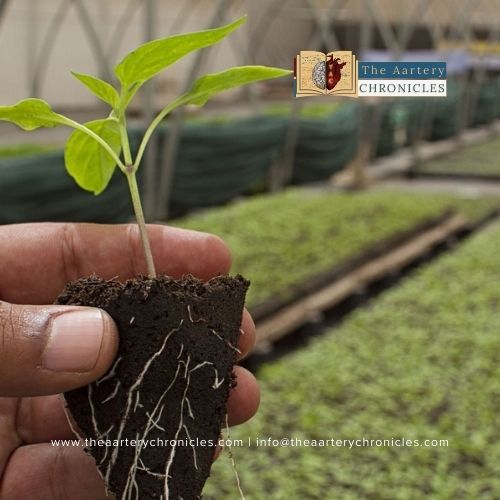

Complete Guide to Hemorrhoid Remedies: Treatments, Tips & Prevention
Introduction
Hemorrhoids are a common condition that occurs when the veins in the anal and rectal area become enlarged and inflamed, causing pain, itching, and bleeding. There are two types of hemorrhoids: internal hemorrhoids, which develop inside the rectum, and external hemorrhoids, which are located under the skin around the anus. Although hemorrhoids are not a serious condition, they can be very uncomfortable and cause significant discomfort. There are several remedies available to relieve the symptoms of hemorrhoids, both through home treatments and more advanced medical options. In this article, we will explore home treatments, natural remedies, medical options, and prevention strategies to manage hemorrhoids and prevent them from getting worse.
Common Causes Of Hemorrhoids
Hemorrhoids can be caused by a number of factors that increase pressure in the veins of the anal and rectal area. Some of the most common causes include:
- Chronic constipation: Straining excessively during bowel movements can increase pressure in the anal veins and promote the development of hemorrhoids.
- Prolonged diarrhea: Frequent or severe diarrhea can also irritate the anal area and contribute to the development of hemorrhoids.
- Pregnancy: Pregnant women are especially prone to developing hemorrhoids due to increased pressure on the rectum and surrounding veins.
- Obesity: Excess body weight can put pressure on the veins in the anal area, increasing the risk of hemorrhoids.
- Sedentary Lifestyle: Sitting for long periods of time, especially on the toilet, can increase your risk of hemorrhoids.
- Low-fiber diet: A low-fiber diet can cause constipation, which can lead to straining during bowel movements and the subsequent development of hemorrhoids.
Home Remedies For Hemorrhoids
Many home remedies can help reduce the pain, inflammation, and discomfort associated with hemorrhoids. Here are some of the most effective remedies:
1. Warm baths (Sitz bath)
Taking a warm bath or sitz bath for 15 to 20 minutes, two to three times a day, can help reduce the pain and inflammation of hemorrhoids. Warm water improves circulation in the anal area, relieves irritation, and promotes healing. It is recommended to avoid using soaps or chemicals while bathing, as they can further irritate the area.
2. Hemorrhoid Creams and Ointments
Hemorrhoid creams and ointments available at the drugstore often contain ingredients that reduce pain, itching, and inflammation. Some of these products contain hydrocortisone, a corticosteroid that reduces swelling, or lidocaine, which acts as a local anesthetic to relieve pain. These treatments can be especially helpful for external hemorrhoids.
3. Witch Hazel (Hamamelis)
Witch hazel is a natural remedy with astringent and anti-inflammatory properties. Applying pure witch hazel to a cotton ball and gently dabbing it on the affected area can help reduce swelling and itching caused by hemorrhoids. This remedy can be used several times a day.
4. Cold compresses
Cold compresses or applying an ice pack wrapped in a cloth to the anal area can reduce inflammation and relieve pain. Cold compresses are especially helpful in temporarily reducing swelling of external hemorrhoids. It is recommended that you apply ice for about 10 to 15 minutes at a time.
5. Increase your fiber intake
A high- fiber diet helps prevent constipation and facilitates bowel movements, thus reducing straining during bowel movements, a major cause of hemorrhoids. Foods rich in fiber include fruits, vegetables, whole grains, and legumes. Supplementing your diet with a fiber supplement such as psyllium or wheat bran can be helpful in keeping stools soft and easy to pass.
6. Drink plenty of water
Staying hydrated is essential to keep stools soft and prevent constipation. Drinking at least 8 glasses of water a day is recommended to aid digestion and improve intestinal transit.
7. Avoid straining during bowel movements
Straining too much during a bowel movement can aggravate existing hemorrhoids or encourage their development. It is important not to hold in the urge to go to the bathroom and to adopt a comfortable position on the toilet, without spending too much time sitting.
Natural Remedies For Hemorrhoids
In addition to medical and home treatments, there are several natural remedies that can relieve the symptoms of hemorrhoids:
1. Aloe vera
Aloe vera gel has anti-inflammatory properties that can help reduce swelling and irritation of hemorrhoids. Applying pure aloe vera gel directly to the affected area can provide relief from pain and itching.
2. Coconut oil
Coconut oil has anti-inflammatory and antimicrobial properties that can reduce irritation and promote healing of hemorrhoids. The oil can be applied directly to the affected area to reduce itching and promote healing.
3. Tea tree essential oil
Tea tree oil is known for its antimicrobial and anti-inflammatory properties. It can be mixed with a carrier oil such as coconut oil and applied topically to reduce inflammation and prevent infection.
Medical Treatments For Hemorrhoids
If home and natural remedies are not enough to relieve the symptoms of hemorrhoids, you can resort to more advanced medical treatments. Here are some of the options:
1. Elastic binding
Rubber band ligation is a minimally invasive procedure used to treat internal hemorrhoids. During this procedure, the doctor places a small rubber band at the base of the hemorrhoid, cutting off the blood flow. After a few days, the hemorrhoid shrinks and falls off.
2. Sclerotherapy
Sclerotherapy is another procedure used to treat internal hemorrhoids. In this case, the doctor injects a chemical solution into the hemorrhoid, causing scarring and shrinking of the hemorrhoid.
3. Infrared or laser coagulation
Infrared or laser coagulation is used to treat internal hemorrhoids. These procedures aim to reduce blood flow to the hemorrhoid, causing it to shrink.
4. Hemorrhoidectomy
For very large or persistent hemorrhoids, a hemorrhoidectomy, a surgical procedure in which the hemorrhoids are removed, may be necessary. This type of treatment is usually reserved for the most severe cases and is performed under anesthesia.
Hemorrhoid Prevention
Hemorrhoid prevention is essential to avoid recurrence of symptoms. Here are some helpful strategies:
- Increase fiber intake in your diet to prevent constipation.
- Drink plenty of water to keep stools soft.
- Avoid excessive force during evacuation.
- Avoid sitting on the toilet for too long.
- Exercise regularly to improve circulation and intestinal motility.
- Maintain a healthy weight to reduce pressure on the anal veins.









